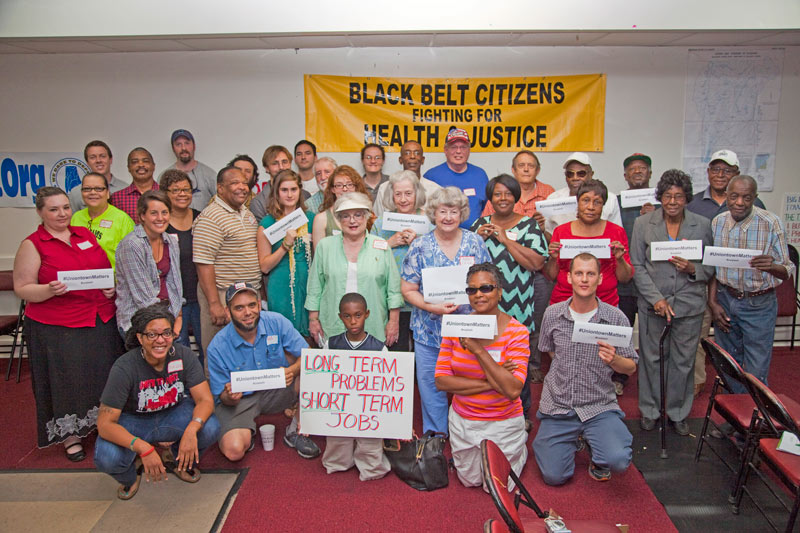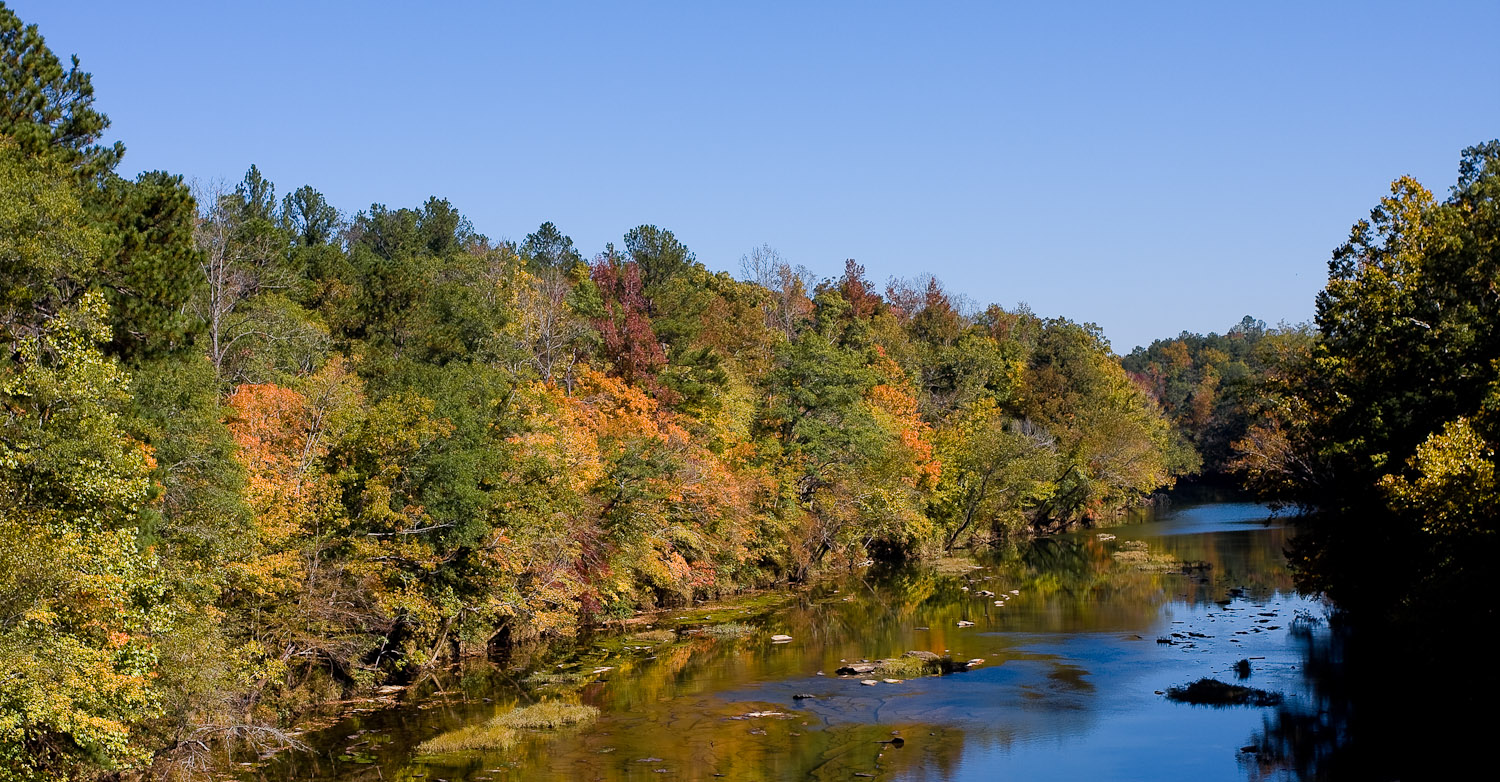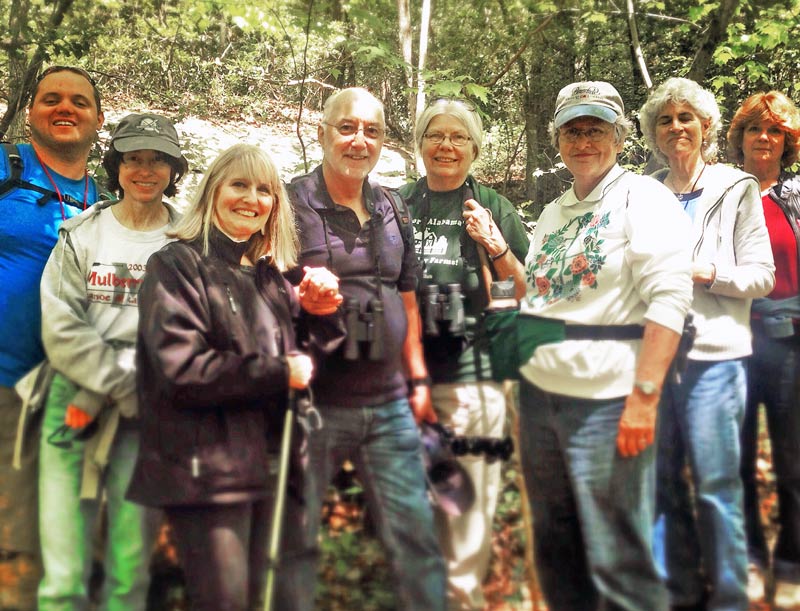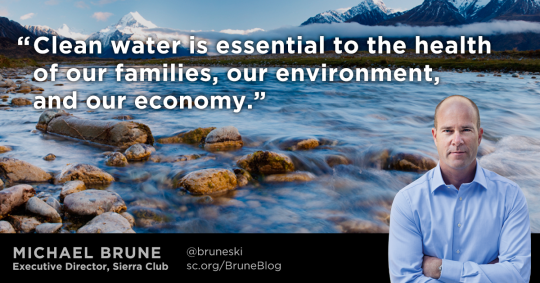Uniontown Needs Clean Water and Productive Land Not More Coal Ash

May 23rd, Uniontown, Al. Building Bridges for Justice workshop where over 60 people gathered to protect their community from toxic coal ash and develop a vision for a healthy Uniontown. Photo courtesy of John Wathen.
by Adam Johnston
Uniontown, Alabama sits in the very southern part of Perry County and in the heart of the Black Belt Region of the Southern US, which is known for its rich, dark soil and physical geologic features. The wonderful natural resources of the area (including its people) have heavily influenced its past and all of our lives depend upon the health of our land, water, and air.
Today, Uniontown and the surrounding communities are plagued by extreme poverty, unemployment, and high-risk economic development such as the Arrowhead Landfill, which holds over 4 million tons of toxic coal ash from the disastrous 2008 Kingston, Tenn., spill. A group of Perry County citizens have filed a Civil Rights Complaint, currently pending, against the Alabama Department of Environmental Management (ADEM), alleging they were discriminated against when the state modified and renewed the landfill’s permit to increase in capacity, without strengthening the permit and putting in place proper health protections and protections for civil rights. This mega-landfill holds a toxic waste that contains Arsenic, Mercury, Lead, Boron, and many other harmful elements. And now the landfill is requesting more ash, see their press statement here (http://www.marketwired.com/press-release/arrowhead-landfill-provides-safe-haven-for-utilities-disposing-of-coal-ash-2016687.htm).
Recently, the Arrowhead Landfill has been struggling to stop unpermitted discharges from entering adjacent streams which compromise near-by surface waters and earlier this year a continuous discharge lasted more than 30 days (reports residents). Meanwhile, our state department of environmental management says this landfill has never received a violation. Also, this landfill lies directly adjacent to one of the biggest catfish corporations in the world and this enormous factory farm and its ponds use a very large amount of water that they usually pump from the ground. The US Environmental Protection Agency has said that all landfills will eventually leak and we see in other states (like North Carolina) that coal ash is contaminating ground water. Does something smell fishy here? Did you know that Alabama regulates coal ash similar to a household waste and that it can be stored in municipal landfills?
Uniontown also has severe problems with its wastewater management. One industry's (the catfish plant) discharge has been exceeding proper levels and contributing to the City's broken sewage collection system. Similarly, on the other end of town a highly profitable, mass production cheese plant is fouling up the air and local waterways. The company has recently reported one huge spill to our state agency out of what are many suspected spills, say local residents. Neighbors are questioning proper state enforcement of the Clean Water Act and other laws meant to protect property values and public health. The receiving stream (Cottonwood Creek) has been exploited for a long time explain local leaders as the city's waste water lagoon sits on the stream's headwaters, immediately upstream from the cheese plant's waste water collection system.
The City's waste water system has been in violation of the Clean Water Act for decades and adding dangerous amounts of bacteria downstream where family-farmers have been complaining about loss of crop productivity, poor water quality, and lack of adequate state protections. Big factory farms (CAFO) and Publicly Owned Treatment Works (POTW) most follow laws and regulations just as its employees and workers and the downstream property owners.
The City, its Engineer, the State Department of Environmental Management (ADEM) have been improperly enforcing and literally over-seeing the daily contamination of Freetown Creek (thousands of gallons a day) which flows towards Gee's Bend and the Alabama River. The magnitude of the problem has created a situation where the City cannot provide additional sewage capacity for growth. A few years back a $ 4.8 million USDA grant project was awarded to the City for providing solutions to their wastewater problems. The majority of the money was mismanaged and spent without addressing the unpermitted overflows. Meanwhile Sentell Engineering continues guiding the City's treatment system. Will USDA, ADEM, City, and Engineers continue to ignore and perpetuate the problems? See if this answers your question: the head Engineer for Uniontown is John Stevens who is also a Governor appointed member of the Alabama Surface Mining Commission, a state agency that oversees mining regulations and has had problems regarding its permitting and enforcement.
Uniontown's poor water and air quality add to the poverty, poor health, and unemployment and this jobless period and extreme environmental degradation will not end if the City and State continue the current inadequate enforcement at the landfill, cheese plant, and City's waste water system.
In Uniontown and Alabama we have many laws that have been created for protection of public health and property values that are not being adequately enforced (like the Clean Air Act, Clean Water Act, Civil Rights Act, U.S. Constitution, etc.) and we also have laws created to continue trends of poverty and poor public health. Alabama desperately needs the continuation of citizen involvement in local and state politics.
And so the Uniontown citizens and residents of the Black Belt continue to gather, plan, and develop a vision for a community that does not include coal ash, broken sewage systems, poor public health, poverty & unemployment. Citizens want clean water, sustainable jobs, and productive land; Uniontown needs justice and equity. May we all come together to for the protection of human and civil rights for all people. May the Alabama Sierra Club continue to support the efforts in the Black Belt for clean water and environmental justice.
Save the Date! October 23-25, 2015
Alabama Sierra Club Retreat
Explore, Enjoy, Protect… on 440 acres at the beautiful Living River Center on the Cahaba River.
The focus will be on outings with experienced guides, hands-on learning, and exploring the beauty of the river and surrounding area. There will be opportunities to hike, bird, hunt for fossils, and canoe the Cahaba.
Lodging and meals will be available on site.
Look for your registration form coming soon!

15+ Outings and Events Around the State
Summer is just around the corner. The time is right to get out and enjoy the beauty! Find an outing here.
 Dauphin Island & Eufaula NWR Prioritized as Globally Significant Important Bird Areas
Dauphin Island & Eufaula NWR Prioritized as Globally Significant Important Bird Areas
Birmingham, AL – The U.S. Important Bird Area (IBA) Committee has prioritized two sites in Alabama as globally significant for birds of conservation concern documented in reliable numbers at these locations. Dauphin Island and Eufaula National Wildlife Refuge (NWR) are considered sites of global significance because both locations provide essential habitat for birds classified as critical, endangered, vulnerable or near-threatened.
Bird species of global conservation concern at these Alabama sites include:
- Dauphin Island: Semipalmated Sandpiper, Piping Plover
- Eufaula NWR: Rusty Blackbird
Important Bird Areas provide essential habitat for one or more species of breeding, wintering or migrating birds. As the U. S. Partner for Birdlife International, National Audubon Society identifies and works to conserve a network of IBAs throughout the U.S. This network of sites is comprised of state-level IBAs prioritized as continentally or globally significant by the U. S. IBA Committee, a panel of nationally recognized bird experts.
read the full press release on Birmingham Audubon Society's website.
COOSA VALLEY BIRD AND WILDFLOWER OUTING
Paul Franklin (4th from left) for shared his expertise about birds and wildflowers with us on this May 2 outing to Desoto State Park. It was a beautiful day for hiking, and everyone went home with more knowledge about birds and wildflowers.
Grassroots Activism: Years of Activism Pay Off: Ashville Coal Plant Is Set to Retire
After years of rallies, public meetings, educational forums, leadership from the Asheville City council, letter-writing, and even a visit from star Ian Somerhalder, last Tuesday all that hard work paid off. Duke Energy announced it will retire its filthy Asheville coal plant, the 190th plant to announce retirement during the Beyond Coal campaign. (from Sierra Club's Currents newsletter)
The Water of Life: Coming Clean with Michael Brune, Executive Director, National Sierra Club
Long before the hydration pack, there was the Sierra Club cup. Generations of Sierra Club hikers and backpackers kept these metal cups hooked to their belts, ready for dipping into a cool mountain stream. In his famous 1971 profile of David Brower, John McPhee wrote that "In various wildernesses with Brower I had never seen him eat or drink from anything else. In the past, in the High Sierra, he had on occasion rubbed pennyroyal-mint leaves over the embossed letters in the bottom of his cup and added snow and whiskey for a kind of high-altitude julep."
Sierra Club cups are still around, but the carefree days of dipping them into streams are long gone. Despite passage of the Clean Water Act in 1972, safe drinking water is something no one should take for granted -- whether it comes from a mountain stream or the kitchen faucet. What many people don't realize is that divided Supreme Court decisions over the past decade have weakened the Clean Water Act by creating confusion over which U.S. streams and wetlands it covers.
To fix that, the EPA and the U.S. Army Corps of Engineers have spent years working on a sensible Clean Water Rule that clearly defines which waterways are covered under pollution prevention and cleanup programs. The clarified standards will not only protect the drinking water for millions of Americans but also preserve fish and wildlife habitat and reduce the risk of flooding. (read more)
Stop Congress from gutting the Endangered Species Act
In recent weeks the U.S. Senate considered eight bills that would modify the Endangered Species Act, most of which aim to saddle resource-strapped federal wildlife agencies with burdensome new hurdles and requirements. Many also include rules that would force agencies to consider shoddy science and prioritize economic considerations like dirty fossil fuel drilling over wildlife habitat protection. (Sign the petition)
PROCEDURE FOR SENDING MATERIAL TO THE ALABAMA SIERRAN
Many thanks to Roe Hyche, Bob Hastings, Lucina Horner, and Peggie Griffin for agreeing to be the new newsletter committee.
The newsletter is put together monthly, and material for the newsletter should be sent to plgriffin@comcast.net, with a subject line of "For the Editorial Board" no later than the 15th of the month.
Group newsletter editors may continue sending group meeting information and calendars of events to Joe Watts at joe@joewatts.com, no later than the 25th of each month.
Guidelines for Material:
The newsletter committee is seeking articles about Alabama environmental issues, articles highlighting Alabama’s special beautiful places, and engaging write-ups about group and chapter activities.
Articles should be originally written for the Alabama Sierran, factual, and timely.
A link to another publication should only be used rarely, but if a link is to be used, a full summary of the information (at least a paragraph long) should be written, with the link provided for more detailed information.
The newsletter committee has the right to make any changes, so that material will meet these guidelines.
Cahaba Group's Spring Waterfall Hike
March 7, 2015 Cahaba Group outing to visit waterfalls in the Talledega National Forest in Alabama. Looks like a great outing! Check the outings page for more outings across Alabama!

